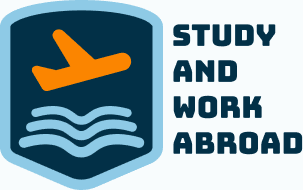Call Us:+91-9920234749, +91-9833420909 info@studyandworkabroad.in
FAQ
Planning to study abroad can be exciting yet overwhelming, with many questions about the process, expenses, visa requirements, accommodation, and more. Our comprehensive list of frequently asked questions covers everything you need to know—from choosing the right country and course to scholarships, part-time work, and post-study opportunities. Whether you’re a student, parent, or professional considering international education, these answers will help you make informed decisions and navigate the journey confidently. Explore these FAQs to clear your doubts and prepare yourself for a smooth and successful study abroad experience.
General Queries
Studying abroad offers high-quality education, cultural immersion, language skills, and enhances employability by providing a global perspective.
Not necessarily. Many programs are taught in English, even in non-English-speaking countries. However, learning the local language can enrich your experience.
Most students go during their sophomore or junior year, but options include summer programs, high school exchanges, or even full degrees abroad.
Begin by researching programs that align with your academic and personal goals. Consult with your academic advisor and the study abroad office at your institution.
Programs can range from a few weeks (summer or short-term programs) to a full academic year or even the entire duration of a degree.
Application & Eligibility
Requirements vary by country and institution but generally include:
-
Academic transcripts
-
Language proficiency tests (e.g., IELTS, TOEFL)
-
Letters of recommendation
-
Proof of finances
-
Valid passport
-
Application forms
Typically, a minimum GPA of 2.5 to 3.0 is required, but this can vary depending on the program and institution.
Some programs may require an interview, especially competitive ones. It’s best to check with the specific program for their requirements.
Application timelines vary, but it’s advisable to start planning at least a year in advance to meet deadlines and prepare necessary documents.
Common documents include academic transcripts, letters of recommendation, a statement of purpose, proof of language proficiency, and financial statements.
Costs & Financial Aid
Studying abroad offers high-quality education, cultural immersion, language skills, and enhances employability by providing a global perspective.
Not necessarily. Many programs are taught in English, even in non-English-speaking countries. However, learning the local language can enrich your experience.
Most students go during their sophomore or junior year, but options include summer programs, high school exchanges, or even full degrees abroad.
Begin by researching programs that align with your academic and personal goals. Consult with your academic advisor and the study abroad office at your institution.
Programs can range from a few weeks (summer or short-term programs) to a full academic year or even the entire duration of a degree.
Program Selection & Academics
Consider factors like language, culture, climate, academic offerings, and personal interests. Researching destinations that align with your academic and personal goals is crucial.
Most fields of study are available abroad. Some countries or institutions may have strengths in specific areas, so it’s beneficial to research programs that align with your academic interests.
Different countries excel in different academic areas. For example, Germany is known for engineering, the USA for research and innovation, the UK for business and humanities, and Canada for tech and healthcare.
Stay connected with loved ones, build a support system abroad, engage in campus activities, and give yourself time to adapt. Homesickness is normal and usually fades as you adjust.
A student exchange is typically short-term (a semester or year) at a partner institution, while a full-degree program means completing an entire course (like a bachelor’s or master’s) in a foreign country.
Visas & Logistics
Housing options include university dormitories, shared apartments, or homestays. Availability and preferences vary by program and location.
Budgeting is key. Consider cooking at home, using public transportation, and seeking student discounts. Part-time work (if permitted) can also help offset costs.
Pack essentials including important documents, appropriate clothing, medications, and any necessary electronics. Research your destination’s climate and culture to pack accordingly.
Stay informed about local laws and customs, register with your embassy, keep emergency contacts handy, and always be aware of your surroundings.
